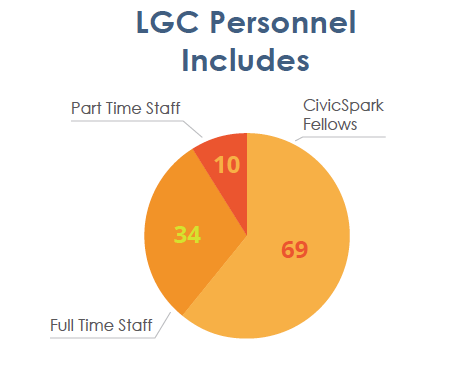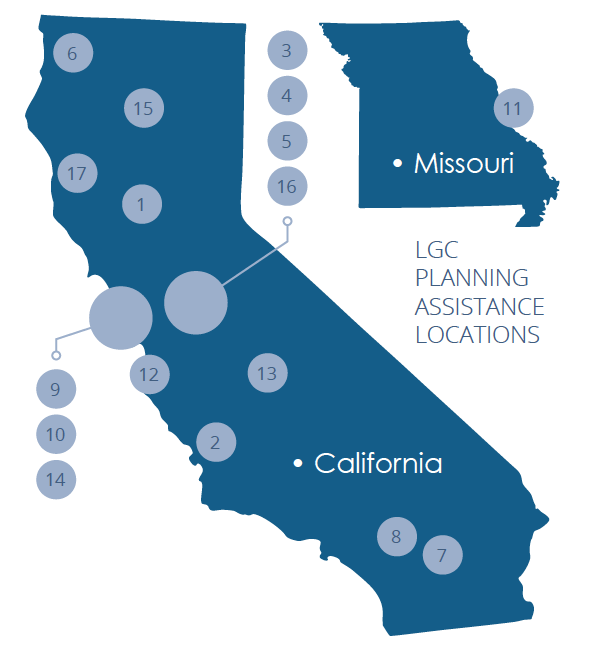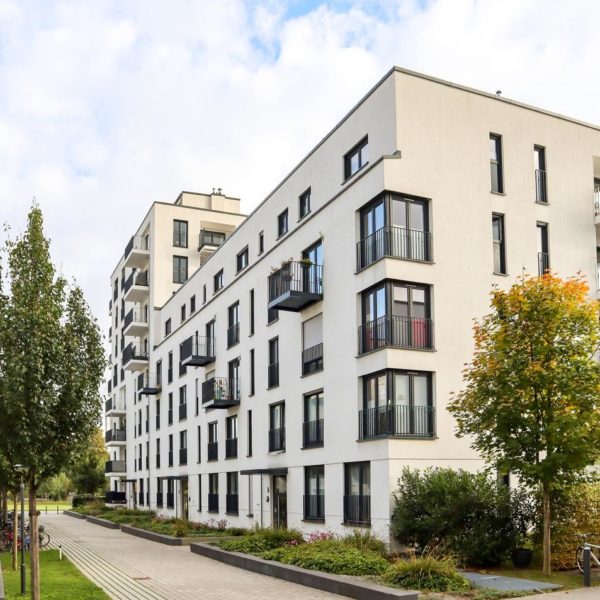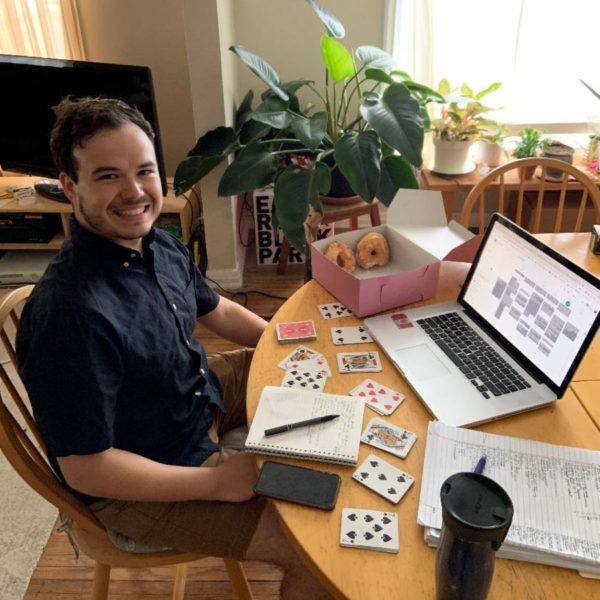California is leading the charge as an implementer, innovator and model – and members of the Local Government Commission are the tip of that spear.
The Year in Review: Local Government Successes by the Numbers
“We believe that real change-and the responsibility for that change-happens at the local level: on street corners and in city council meetings; in relationships built and places created by people working together…
Our work honors those dedicated to making change on a local level.”
– Kate Meis, Executive Director of the Local Government Commission

With a massive retreat and withdrawal by the federal government in 2017, leadership and pragmatic action on climate change and sustainability by states, regional collaborations and local governments across the country became more critical than ever in 2017.
California is leading the charge as an implementer, innovator and model – and members of the Local Government Commission are the tip of that spear.
As we begin to enter a new year, it’s worthwhile to take a look back at some of our successes – and hopeful signals that we can carry this momentum and dedication to the challenges that lie ahead in 2018 and beyond.
How Are We Doing?
A national survey by EcoAmerica and Path to Positive conducted in October to determine attitudes and behaviors around climate change found that, across-the-board, LGC members are more concerned about climate change, and are taking more actions to address climate change – in some cases at rates more than three times higher than the national average.
As individuals and organizations, LGC members believe climate change is real, are personally concerned, and observe changing weather patterns at rates higher than national averages – 96% believe climate change is happening now (vs. 80% nationally).

LGC members also see the benefits of addressing climate-change impacts- from improving health, boosting the economy, and increasing jobs – again at rates significantly higher than national averages:
- 88% say if the U.S. took steps to help prevent future climate change it would improve their health (vs. 67% nationally)
- 84% say it would help the economy (vs. 64%)
- 79% say it would increase jobs (vs. 61%)
LGC members strongly believe clean air, water and energy are essential human rights for everybody. We strongly believe it’s our moral responsibility to provide a safe and healthy climate:
- 92% strongly agree that we have a moral responsibility to create a safe and healthy climate for ourselves and our children (vs. 83% nationally)
- 92% strongly agree clean water is a critical right for all (vs. 75%)
- 89% strongly agree clean air is a critical right for all (vs. 70%)
- 82% strongly agree everyone has a right to clean energy that does not pollute the air or water (vs. 65%)
LGC members strongly favor proposals to reduce the pollution that causes climate change at rates much higher than national averages, with most favoring charging corporate polluters for their pollution and passing laws to help build more efficient infrastructure.
- 97% favor a proposal to reduce climate change pollution by charging corporate polluters a fee for the pollution they create, with 79% strongly favoring this (vs. 81% and 53% nationally)
- 79% strongly favor passing laws for more efficient buildings and cars (vs. 46%)
- 56% strongly favor providing personal tax credits for electric or hybrid cars (vs. 38%)
- 79% strongly favor expanding public transit, like buses and trains (vs. 42%)
- 77% strongly favor modernizing America’s electric grid (vs. 52%)
- 52% say the money collected from a fee on pollution should be used to fund research and development of new, clean energy resources (vs. 39% nationally)
LGC members report much higher rates of engagement from their communities:
- 73% say their city is taking climate action by conserving energy (vs. 32% nationally)
- 72% say their city has goals to reduce climate impacts (vs. 20%)
- 57% say their city is purchasing clean energy (vs. 22%)
- 54% say their city is educating the public about climate change (vs. 21%)
LGC members are doing more personally to act on climate solutions, and also we believe climate action should be prioritized over economic growth at rates more than double the national averages.
- 96% have discussed climate change with family and friends (vs. 69% nationally)
- 95% have discussed climate change with colleagues at work (vs. 41%)
- 84% have upgraded appliances or lights to conserve energy (vs. 66%)
- 79% contacted or voted for a candidate based on his/her support for taking action on climate change (vs. 35%)
- 63% shifted toward a more energy-efficient form of transportation, like bikes or walking (vs. 39%)
- 52% shifted toward a more energy-efficient form of transportation like public transport (vs. 31%)
- 48% shifted toward a more energy-efficient form of transportation like hybrid cars (vs. 24%)
- 82% disagree that it is more important that we prioritize economic growth over taking action on climate change (vs. 40%)

Local Government Commission staff have been working to do our part too. We are supporting local leaders through nationally recognized events, cost-effective technical assistance, and interconnected policy guidance on climate change, energy, water and healthy community design.
Implementing Solutions

In 2017, the Local Government Commission provided support to more than 155 local and regional jurisdictions. These services included technical assistance, charrettes, community-design workshops, walkability assessments and trainings. Our CivicSpark fellows, a partnership with the Governor’s Office of Planning and Research, also provided more than 106,000 hours of service on water and climate-action projects to 62 communities throughout California including:
- Conducting 64 community events
- Engaging more than 10,700 community members
- Hosting 56 implementation workshops
- Completing 4 Climate and Energy Action Plans
- Completing 46 Greenhouse Gas Emissions and Water Inventories
- Completing 4 Vulnerability Assessments
- Engaging 634 local businesses

Our “WE CAN San Joaquin Valley” program has conducted more than 100 landscape upgrades to date (91 single-family and 12 institutional) via rebates and direct-install projects in Fresno County. A few measurements of the WE CAN impact so far:
- 236 residences or institutions served across Fresno County
- 20 FTE jobs created or supported (15 to designated “disadvantaged communities”)
- More than five million tons of CO2 emissions prevented (annually, for next 20 years) – that’s equivalent to entire emissions of 200,000 U.S. households, or nearly the entire population of Modesto
- 19 million gallons of water saved (annually, for next 20 years) – that’s enough water for nearly 60 families for a year
- 24,500 kWh of energy use reduced (annually, for next 20 years) – that’s the average energy consumption of two 2 households for a year
Connecting Leaders

This year, the Local Government Commission reached more than 7,500 livable-community and sustainability leaders and practitioners through our national conference, statewide forums, local design workshops, podcasts, webinars, listservs and networking events.
- More than 13,660 people received LGC newsletters
- Nearly 2,000 people subscribe to Infinite Earth Radio, a podcast LGC hosts in collaboration with Skeo, and more than 93,000 podcast episodes have been downloaded
Advancing Policy

The Local Government Commission has provided 38 comment letters on state legislation and guidance documents, and participated on two-dozen presentations, panels and interviews.
Our staff and members have engaged state agencies in 42 policy-related actions, facilitated four policy workshops, developed six policy fact sheets, and served on 18 advisory committees at the state and federal level.
Our focus areas this year covered topics on affordable housing, transportation funding and autonomous vehicles, cap-and-trade extension, climate assistance and Property Assessed Clean Energy (PACE) improvements.
For more information about LGC’s work in 2017 you can find our Annual Impact Report.
Our Priorities and Projects for 2018
We have a number of core priorities and major projects already scheduled for next year.
Given LGC member’s substantial leadership on Climate Change and the lack of Federal leadership- we have an important role to play in 2018 to amplify and expand the progress we’re making at the local level. LGC’s third biennial California Adaptation Forum on August 28th and 29th and the Global Climate Summit that will be held in California in September both represent timely opportunities to highlight successes and encourage further local actions.
Preparing for autonomous vehicles is another timely need- LGC members will be critical to ensuring that communities benefit from this transformational technology. In 2018, LGC will develop local guidance and specific strategies to align autonomous vehicle deployment with smart growth principles. LGC is working with a number of groups including Caltrans and UC Berkeley’s Transportation Sustainability Research Center to conduct research on existing strategies, to hold three stakeholder meetings across the state and ultimately to produce a policy playbook that is released at a daylong workshop.
Another major focus for 2018 will be helping communities to increase social mobility by addressing implicit bias, implementing strategies to increase affordable housing and identifying opportunities to increase broadband access. One of the ways LGC hopes to increase social mobility is by adding 20 new “Opportunity Access” fellows to our CivicSpark program starting in the fall of 2018.
Lastly, we will be continuing our effort to support local leadership to create livable communities by developing a new funding platform and navigation service in 2018 that will help with project scoping and funding identification. This new initiative will augment our ongoing work to help communities access cap and trade and other state funding, to implement projects through our CivicSpark fellows and staff technical assistance, and to provide policy guidance and project development support on sustainable water management, clean energy, healthy community design and climate change resilience.
We will kick off the year by connecting our network at our annual NPSG conference February 1-3 – this year we’re back in CA and have designed an exciting a new format. More information here: www.NewPartners.org
A Time of Renewal
As a LGC network, we’ve worked hard in 2017 to show that action on climate change is as urgent as ever, that we will stand up in support of the most vulnerable people in our community and that we have a responsibility to be good stewards of our resources for current and future generations. We are committed to making a real difference in our communities and beyond with practical, measurable action.

We’ve laid a solid foundation to continue our progress and expand our successes in 2018- to do so we will need to continue to band together and sustain our spirit of collaboration and innovation into the coming year.
Thank you for your significant leadership throughout the year. We look forward to partnering with you in 2018!
Local Government Commission Newsletters
Livable Places Update
CURRENTS Newsletter
CivicSpark™ Newsletter
LGC Newsletters
Keep up to date with LGC’s newsletters!
Livable Places Update – April
April’s article: Microtransit: Right-Sizing Transportation to Improve Community Mobility
Currents: Spring 2019
Currents provides readers with current information on energy issues affecting local governments in California.
CivicSpark Newsletter – March
This monthly CivicSpark newsletter features updates on CivicSpark projects and highlights.



